Imaginaries
Understanding imaginaries as devices to conceive the present, desire change and create the future, I invite germinal contemporary thinkers to present a source of imaginary important for the present.
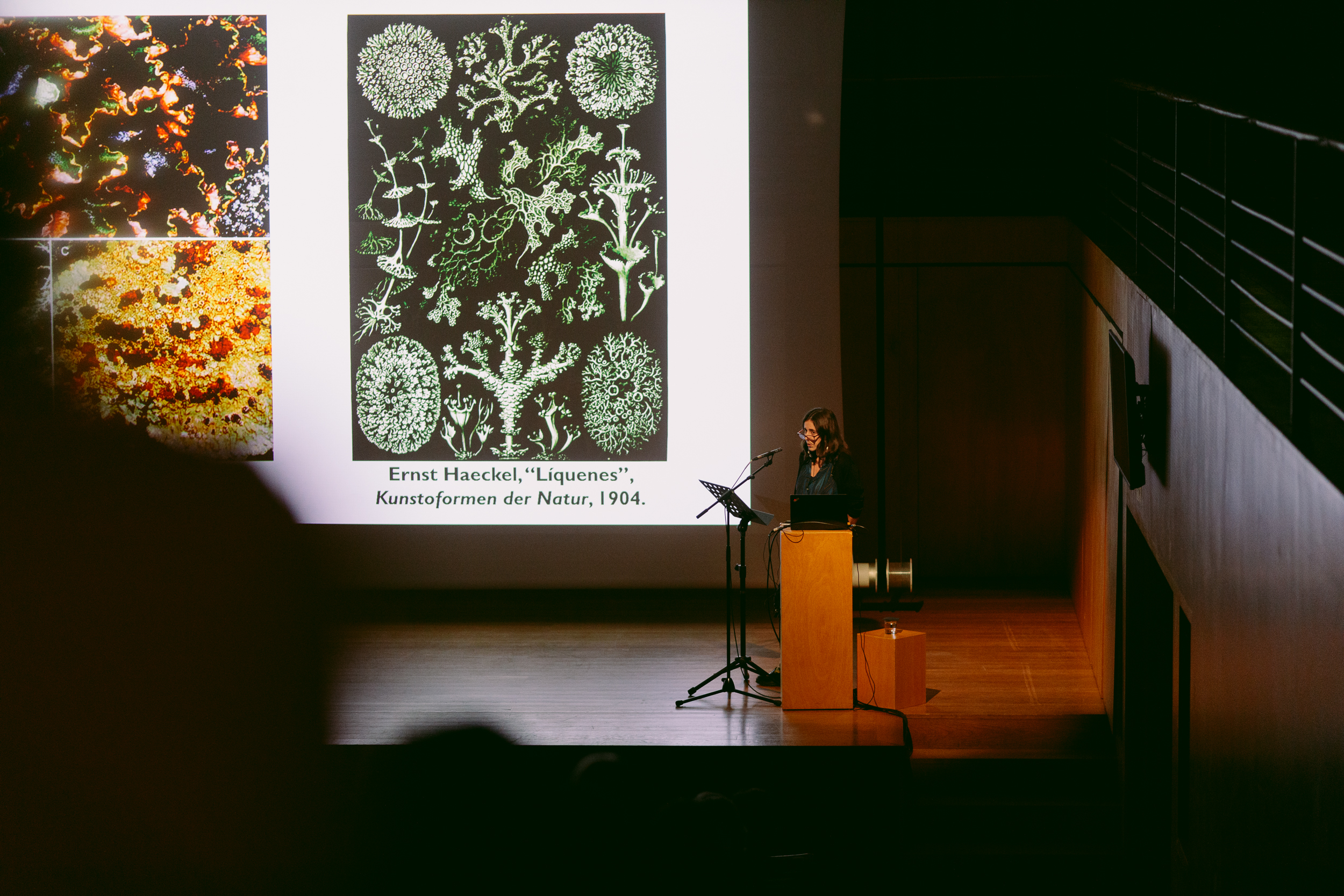

Imaginaries / Friday, April 29, 7pm
Thinking with Lichens and Weeds — Teresa Castro
Plants have a unique capacity to relate to other entities, collaborating with bacteria, fungi, insects and other human and more-than-human planters, showing us how life is a matter of alliances, relationships and mixtures.
During this event, thinker Teresa Castro analyses the affective ecologies suggested by lichens and weeds, investigating their implications and imaginaries. Her starting point is Silvia Maglioni and Graeme Thomson’s installation Like Lichens Listen, exploring the potential of lichens, weeds and cinematic images to suggest other ways of seeing and relating to the world.
— On the day of the event, Maglioni and Thomson’s installation Like Lichens Listen will be on display at the BMAG Auditorium.
Teresa Castro is Professor of Cinema Studies at Sorbonne Nouvelle – Paris 3. She investigates the relationship between cinema and animism, ecocriticism and vegetal life.

Imaginaries / Friday, April 29, 5-7pm
Like Lichens Listen, by Silvia Maglioni & Graeme Thomson
Inspired by the symbiotic interactions of lichens and the extraordinary solidarity of the vegetal world which fosters collaboration between organisms of completely different natures, Like Lichens Listen is a series of installations by filmmakers and artists Silvia Maglioni & Graeme Thomson drawing upon rushes and research materials from their 2019 feature film Common Birds. Originally commissioned by Fondazione Merz, this modular installation is conceived as an immersive environment where we can dwell in an awareness of deep time. Images of the Garajonay Forest (La Gomera), an ancient living organism that hosts an enormous variety of endangered plants and species combine with a shifting electroacoustic soundscape in an invitation to re-enchant the world and listen to the play of inter-species alliances.
The projection of this piece is part of Teresa Castro's conference, which will take place starting at 7pm, at the same location.
The projection of this piece is part of Teresa Castro's conference, which will take place starting at 7pm, at the same location.
LIKE LICHENS LISTEN (Variation IV)
Silvia Maglioni & Graeme Thomson
17'21'' HD Looped Video, Stereo
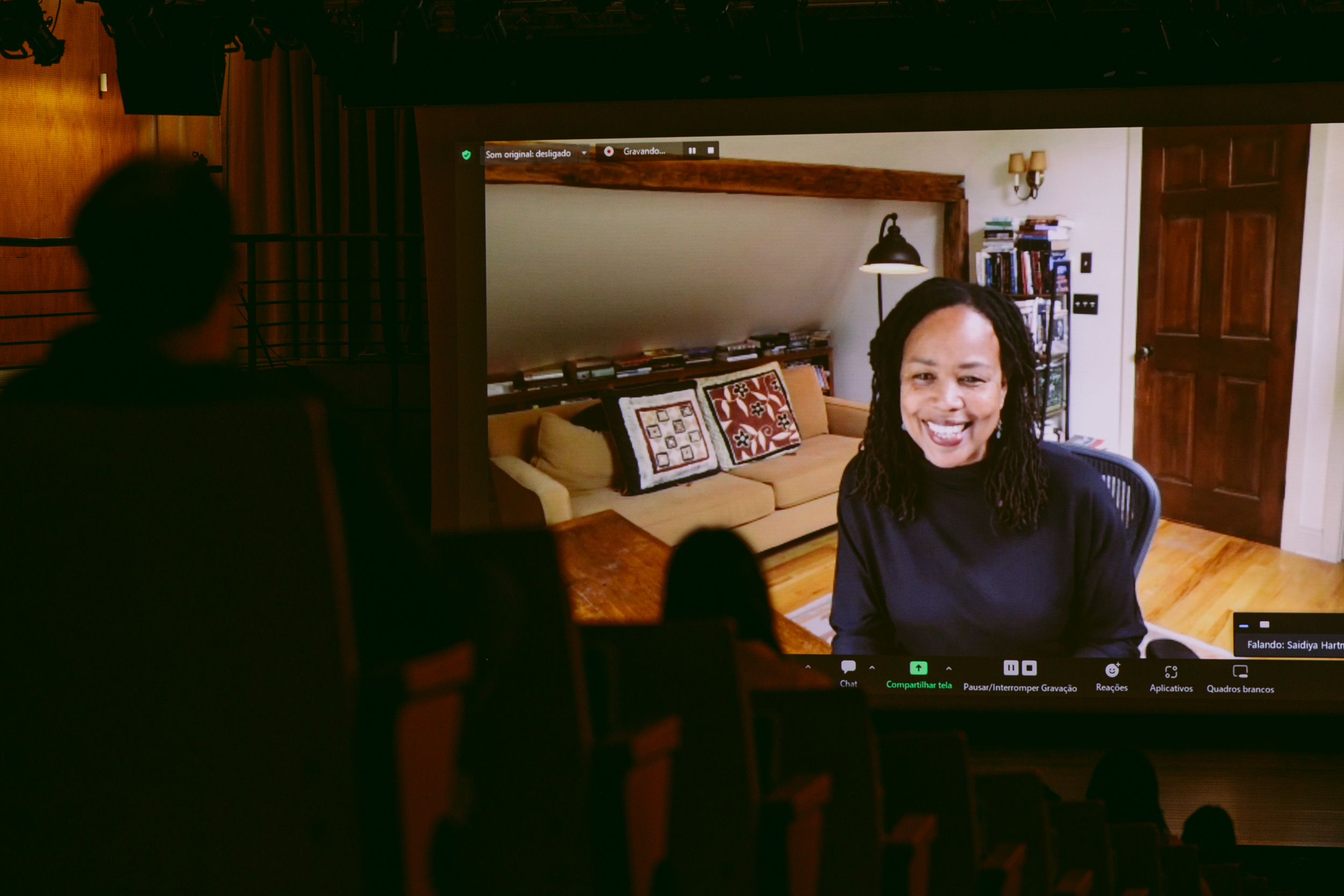

Imaginaries / Wednesday, June 22, 7pm
Saidiya Hartman — History Retold
Scholar Saidiya Hartman has been telling the untold stories of Black lives. Facing the void left by centuries of historiography that ignored and obliterated the voices, minds and bodies of Black people, Hartman developed a method of “critical fabulation”, in which she combines historical and archival research with critical theory and fictional narrative. With her work, she has attested the strength of imagination to challenge and upturn the dominance of white academic voices and viewpoints. This will be a unique opportunity to hear her influential thoughts on our past-present.
Saidiya Hartman is a writer and academic focusing on African American studies. She is Professor of English and Comparative Literature at Columbia University, New York.
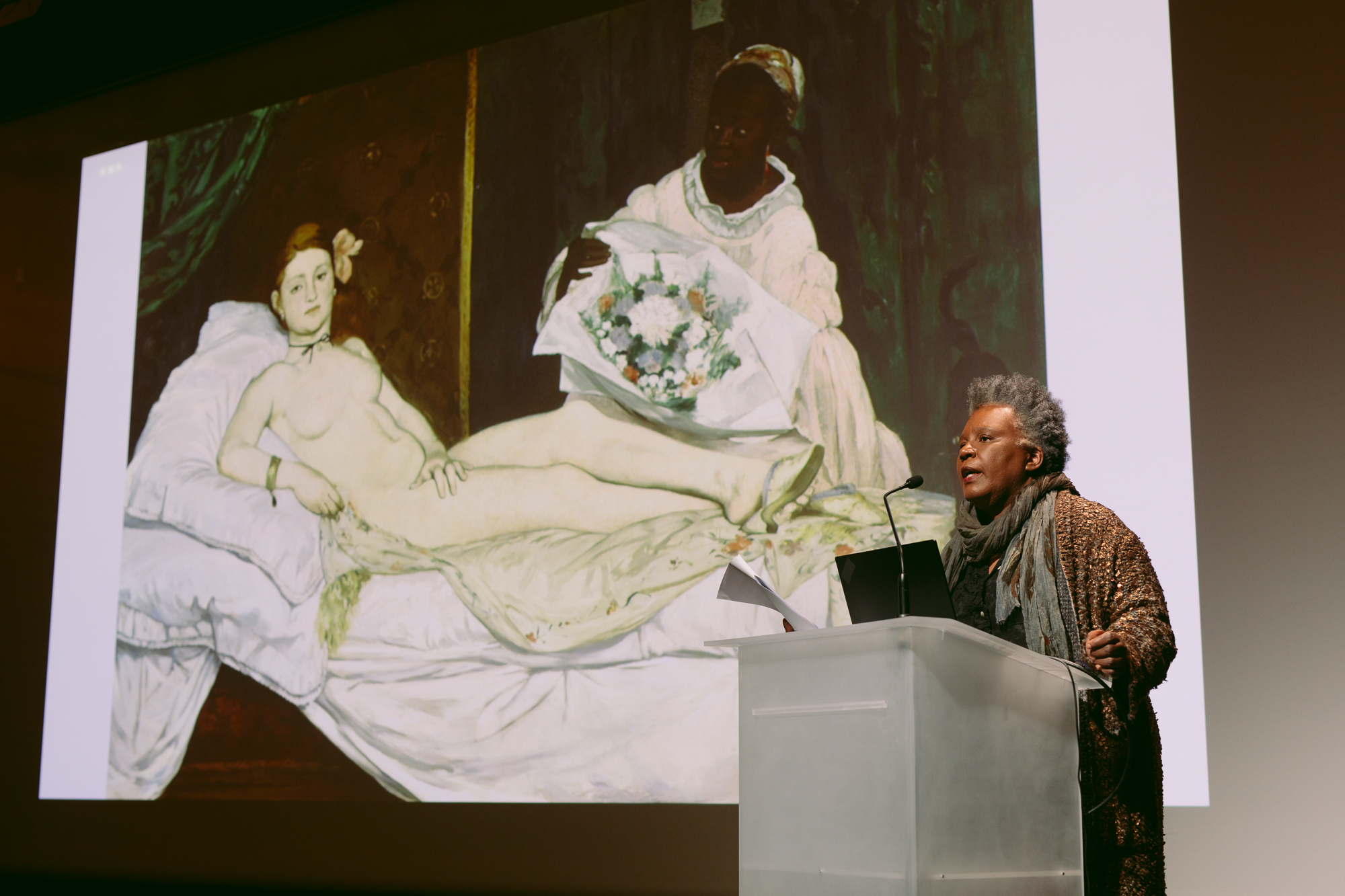

Imaginaries / Friday, October 21, 7 pm
A History of Olympia’s Maid in Contemporary Poetry — Claudia Rankine
How can poetry and visual art reembody and amplify an object that has been reshaped by the historical white gaze? Claudia Rankine will embrace art historian Denise Murrell's research on Édouard Manet's Olympia (1863) and Saidiya Hartman's concept of “critical fabulation” as springboards to discuss the work of a few contemporary poets and artists who similarly view this painting/object as a place of intervention.
A writer and researcher, Claudia Rankine establishes a critical-reactive dialectic through her work, connecting historical and contemporary events associated with the perpetuation of structural racism in American culture. She is a professor of poetry at Yale University, Connecticut, and in 2016 she co-founded the interdisciplinary collective The Racial Imaginary Institute (TRII).
A writer and researcher, Claudia Rankine establishes a critical-reactive dialectic through her work, connecting historical and contemporary events associated with the perpetuation of structural racism in American culture. She is a professor of poetry at Yale University, Connecticut, and in 2016 she co-founded the interdisciplinary collective The Racial Imaginary Institute (TRII).
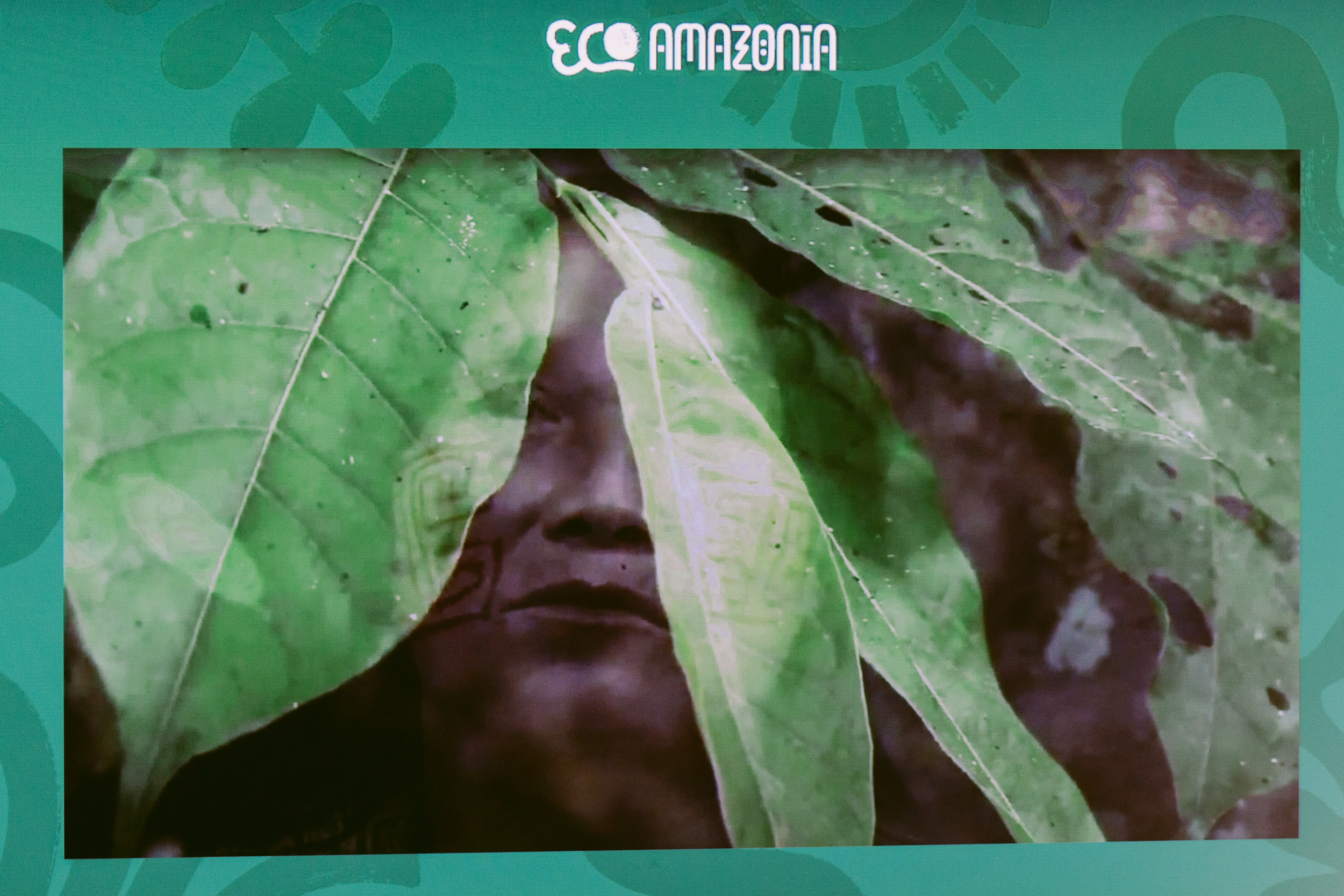

Imaginaries / Thursday, December 15, 7 pm
Other Anthropocenes – The Apocalypse seen from Amazonia — Patrícia Vieira
How can we consider the Apocalypse from an indigenous perspective, for whom the end of the world is a cyclical event? Our geological era is profoundly affected by the impact of humanity and signed by ecological collapse and the end of the reality we know. Based on the work of Denilson Baniwa, artist from the interior of Amazonas, Patricia Vieira reflects on the Anthropocene from the cosmovisions of the peoples from the Amazon Basin.
Patrícia Vieira is a researcher at the Centre for Social Studies of the University of Coimbra, working about Iberian and Latin American Literature and Cinema, Utopia Studies and Environmental Humanities. Since 2020 she coordinates the project ECO – Animals and Plants in Cultural Productions about the Amazon.
Patrícia Vieira is a researcher at the Centre for Social Studies of the University of Coimbra, working about Iberian and Latin American Literature and Cinema, Utopia Studies and Environmental Humanities. Since 2020 she coordinates the project ECO – Animals and Plants in Cultural Productions about the Amazon.
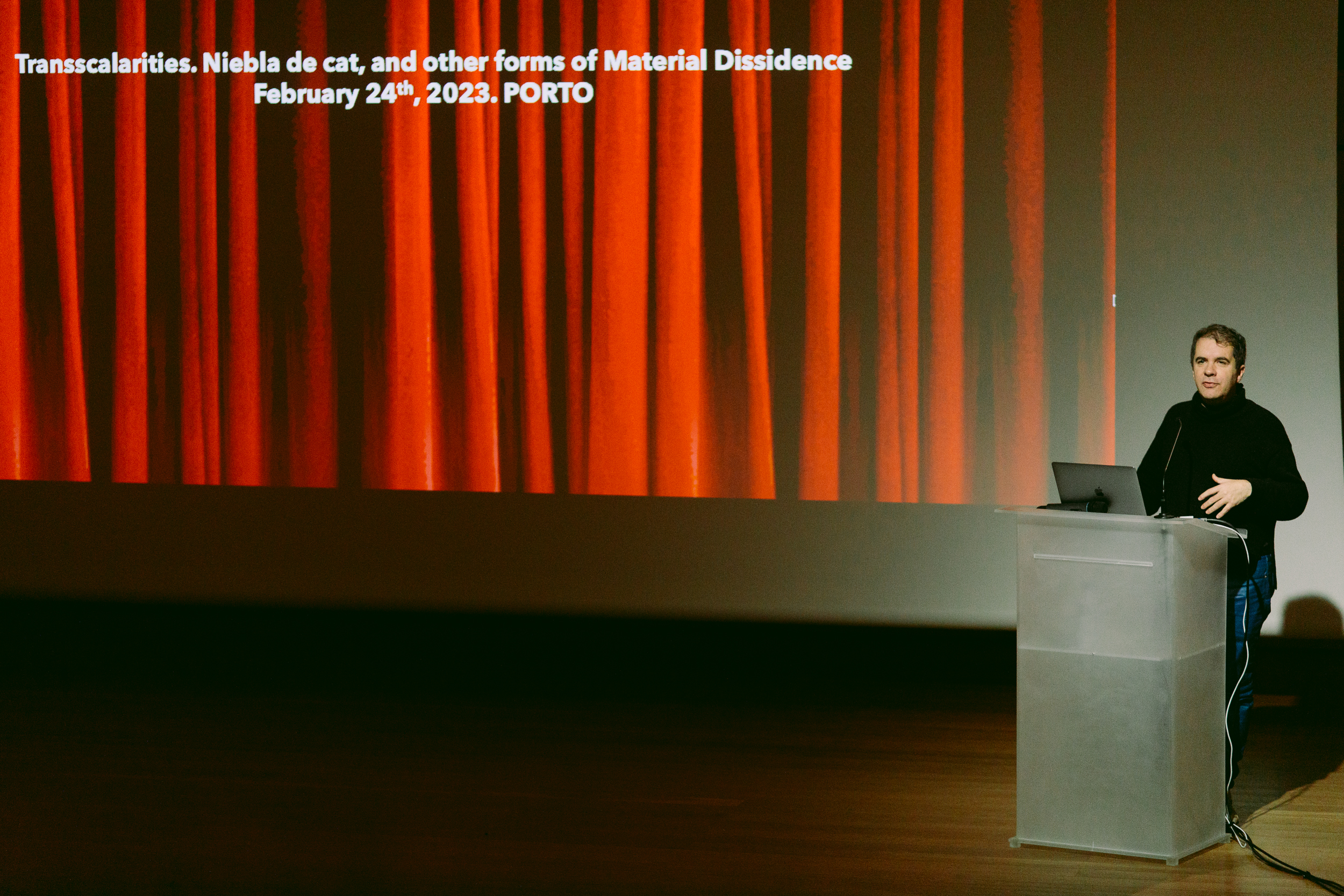

Imaginaries / Friday, February 24, 7 pm
Transcalarities, Niebla the cat, and other forms of Material Dissidence —Andrés Jaque
Unlikely actors — such as the giant Victoria Amazonica lilies, tagged-as-Brazilian sex workers Raphael and Bamban, Silvio Berlusconi, the 432 Park Avenue condos, ultra-clear glass, grindr, fracking; Kim Kardashian's shirtless Lanvin tuxedo, NO2, Niebla the cat, Mies' basement, and Mike Bloomberg's Clean Heat Project—are summoned to reconstruct the recent history of Architecture.
Andrés Jaque — architect, writer, curator and Dean of the Columbia University Graduate School of Architecture, Planning and Preservation — is one of the initiators of interscalar and transmedial approaches to urban and territorial studies. His work explores architecture as the entanglement of life, bodies, technologies and environments. He founded the Office for Political Innovation.
Andrés Jaque — architect, writer, curator and Dean of the Columbia University Graduate School of Architecture, Planning and Preservation — is one of the initiators of interscalar and transmedial approaches to urban and territorial studies. His work explores architecture as the entanglement of life, bodies, technologies and environments. He founded the Office for Political Innovation.
